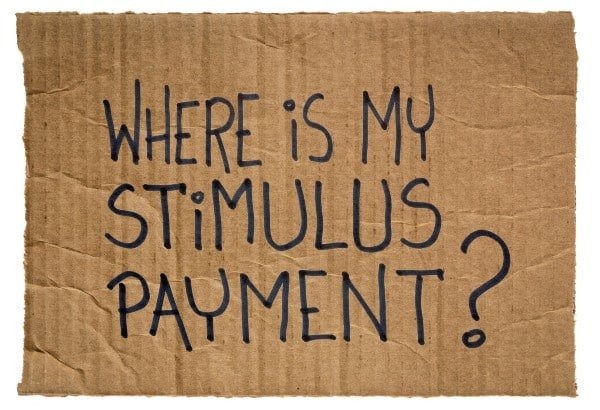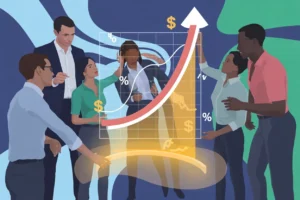COVID-19 has shaken the U.S. and global economy. The economic impact of this outbreak has reached the personal checking and savings accounts of citizens all over the country. As businesses are shutting their doors, many individuals are out of work. When you combine these job losses with the fact that only 41 percent of Americans could cover $1000 with emergency savings, it is understandable if this crisis has negatively impacted your finances.
In late March, Congress passed the CARES Act; a bill meant to ease the financial hardship brought on by COVID-19. One of the provisions established a one-time Economic Impact Payment (stimulus check) for Americans.
Here, at AskTheMoneyCoach, we want to help guide you through this difficult time. We want to answer the personal finance questions that are the most relevant to you during this outbreak. So, if you are wondering about the details associated with the Economic Impact Payments, take a look at the Frequently Asked Questions (FAQs) below.
Who is Eligible?
We recently published a blog post that outlines the eligibility requirements for Americans (link to the previous article). So, be sure to give that a read. Most Americans are eligible for payments, depending on their income threshold. In 2018 or 2019, individuals or heads of household who made 75,000 or less or $112,000 or less respectively, will receive $1,200. Couples who have filed jointly and made an adjusted gross income of $150,000 in 2018 or 2019 will receive $2,400.
Individuals who did not make any money, made too little revenue to file taxes, or those who receive social security or disability payments are also eligible.
What are the Amounts of Economic Impact Payments?
For eligible individuals, the amount is $1,200, and couples can expect to receive $2,400. Individuals and couples will also receive $500 for every child (those under 16) in the home.
If your income is above the mandated limits, you will receive a five-dollar reduction for every $100 you are over the established threshold.
Who Will Not Receive Economic Impact Payments?
While most Americans will receive stimulus checks, the requirements do exclude a few groups of people with adjusted gross incomes higher than:
- $99,000 if you are single or are married and filed separately
- $136,500 if you filed as a head of household
- $198,000 if you are married and filed jointly
Also, if you do not have a valid social security number, are claimed as a dependent on someone else’s tax return, are a non-resident alien, or filed these specific 1040 returns (explained under the Who Is Not Eligible section), then you would also be ineligible.
What Do I Need To Do to Receive It?
There are two scenarios for how you can receive these stimulus checks:
- If you filed a 2018 or 2019 tax return – You do not need to do anything. The IRS will use your checking account information on file to conduct payment through direct deposit. It is worth noting that the IRS will calculate the amount of money you receive based on your 2019 income if you have already filed your return for this year. If not, they will use the 2018 tax return income.
- If you have not filed a tax return in 2018 or 2019 – You can still receive payments. The checks can be sent by mail, or you can fill out a Non-filers application that allows you to input your financial information to receive the payment in your account.
Read: COVID-19 and Coronavirus Cash -7 Ways to Get Money and Economic Relief Fast
When Will I Receive My Check?
The first checks dispersed on April 9, 2020. Payments are being delivered to those with the lowest incomes first. However, if you want to keep track of your stimulus check payment, visit the IRS’ Get My Payment website, which is a website portal that allows you to check the status of your stimulus check.
We know these are uncertain times, and we want to provide the essential information you need to make the best economic decisions for you and your family. So, be sure to stay tuned to AskTheMoneyCoach for more personal finance insights.
If you would like more information about the stimulus checks, visit the Economic Impact Center Information Center.
Also, if you are unemployed and wondering about your eligibility for unemployment benefits, as well as have questions about how to access these payments, be sure to read our unemployment eligibility and FAQ articles.










